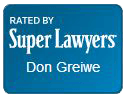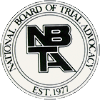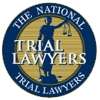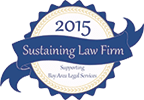News & Resources
Can I Sue the Property Owner for Creating a Dangerous Roadway?
Work with a Skilled Tampa Car Accident Lawyer
If you’ve been injured in a car accident in Florida, then you may be entitled to damages pursuant to a lawsuit. Litigation isn’t always straightforward, however. Litigating a claim against a car accident defendant can be complicated by various issues and circumstances unique to your case.
Among these issues is the prospect of pursuing a claim against a property owner who is responsible (at least in part) for your car accident. For example, if you were involved in a car accident caused by a rotten tree that fell from an adjacent property onto the roadway, then you could ostensibly sue and recover damages from the property owner (who failed to inspect and correct the issue).
Let’s take a closer look.
Property Owner Liability
Property owners in Florida can be held liable for a dangerous condition of the property that causes a premises entrant to be injured. Whether the condition of the property is sufficiently dangerous to attach liability depends on the court’s evaluation of how “unreasonable” the danger posed to the premises entrant was — this is a fact-specific question. Every case will be somewhat different in this regard.
In the car accident context, there are aspects of private and public property (i.e., roadway design/maintenance, traffic light design/maintenance, tree and shrubbery maintenance, etc.) that can create a dangerous condition for drivers. For example, if someone owns a house and a private roadway, and there are serious potholes (that aren’t visibly obvious), then a motorcyclist who crashes as a result of those potholes could ostensibly sue the property owner for damages.
Actual or Constructive Notice is Necessary
In the premises liability context, the property owner can only be held liable if they had “notice” of the dangerous condition at issue. Notice can occur in two ways: 1) actual notice (i.e., the property owner knew about the dangerous condition), and 2) constructive notice (i.e., the circumstances indicate that the property owner knew or should have known about the dangerous condition).
For example, suppose that a person owns a property with a set of trees that hang next to a roadway. The trees rot, causing them to weaken. One of the trees breaks and falls on a passing car, injuring the driver. The driver sues, but the owner argues that they did not actually know about the danger. The driver could counter-argue that the owner had constructive notice, as the trees were rotting for many years and there had been complaints lodged by neighbors about the trees. These facts would likely give rise to liability.
Contact a Tampa Car Accident Lawyer for Assistance
Here at Alley, Clark & Greiwe, our team of attorneys boasts decades of experience advocating on behalf of car accident plaintiffs in Florida courts. We understand just how difficult it can be to understand whether you have a legitimate legal claim for damages. As such, we offer free and confidential consultations to help prospective clients identify their claims and follow through with an actionable strategy.
We are committed to investing time, resources, and attention towards each and every one of our clients. It is our belief that by working closely with our clients, we gain the insights we need to effectively litigate a case.
Ready to speak to an experienced Tampa car accident lawyer at our firm? Call us at (800) 840-0977 or contact us online to arrange a free initial consultation. We look forward to speaking with you.




















